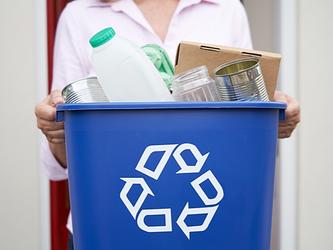Don’t turn your back on sustainability during a recession

There are tough financial times here. That’s what the media can’t stop telling us. The doom and gloom of the economy in the UK, Europe and beyond has been making headlines for months – and they’re not wrong.
Energy price increases are at the core of most of the issues, including resulting stagnant wages leaving people worried about paying their own rising energy bills. For businesses, shifting sands ranging from redundancies (more than 58,000 people laid off in tech in the US already this year) to budget freezes are having an impact.
However, researchers shouldn’t let this negative outlook affect their focus on sustainability, regeneration and general kindness to our home – planet earth. You maybe wonder how that can be… but, dear reader, to ignore sustainability in 2023 or put it on ‘the back burner’ would be short-sighted and, frankly, silly. Now is the time to drive positive change.
It all starts with good intentions
Yes, there are indications that the cost-of-living crisis is somewhat dampening spirits when it comes to making sustainable choices, but the intention to ‘do the right thing’ is still there. According to the latest Who Care, Who Does? Report published by Kantar, six in 10 people try to buy environmentally friendly packaging. Unfortunately, less than three in 10 actually avoid plastic packaging regularly – findings suggest this gap is down to retailers and suppliers, who aren’t going far enough to help.
More people than ever can’t afford to shop around so if their one go-to store doesn’t have the planet-friendly options they’re looking for, shoppers feel they’re left with no choice.
Human8 research has shown that almost six in 10 European consumers wish to change their general habits to have a positive impact on the environment (with the number higher among women, Gen Z and millennials). If given better options, people will often go for green or kind-to-the planet choices.
In Colombia, for example, Unilever has worked with a department store chain, Grupo Exito, to introduce more recycling facilities in the country, which is having the desired knock-on effects of increased recycling. When you give people good choices, as long as it doesn’t cost the earth (pun intended), they tend to go with them.
Furthermore, there is evidence that businesses who keep the planet front and centre have historically been at a distinct advantage during downturns. For example, many experts at the time of the 2008 recession predicted that it would put a stop to most sustainability innovations, but the opposite happened. In a study of B Corporations, B Lab found that these companies were 64% more likely to fare well during the recession than traditional businesses of comparable size.
Consumers are trying to ensure, more than ever, that they have what they need to survive. People are trying to be more conscious in their purchase decisions to deal with the unexpected and live a high-quality life. The current financial and environmental crisis demands brands to demonstrate reliability, empathy and agility.
As researchers and consultants, we need to help connect brands with people and understand how that translates for individual businesses, products and services – including how to avoid greenwashing. We should be helping our clients think about what is truly essential or necessary in the products and services they offer, and how they can play a relevant role in people’s lives.
Sidelining sustainability can cost you money
If you want to be a thriving researcher who finds meaning in their work, with a secure future for yourself and your colleagues, you need to ensure you’re setting clients up for a long and prosperous future, and ignoring the climate crisis is not the way to do this.
With companies coming under increased pressure to improve their carbon emissions, this of course includes their supply chains. Clients will be asking more and more about sustainability policies, and this could well become a factor when deciding which agency to go with.
Reducing carbon emissions doesn’t just cut damage to the planet, it also cuts costs. Whether that’s adopting Martin Lewis’ approach of ‘heat the human, not the house’ when you work from home, switching off unused screens and lights at home and around the office, and avoiding travelling to client meetings or events when a virtual connection would work just as well– it all adds up to saving a pretty penny (keeping costs stable and margins profitable) across the supply chain.
If you still insist on burying your head in the sand when it comes to sustainability, you risk losing out on your slice of the $367bn global sustainability pie – and that’s only what ‘eco actives’ (i.e. those who are highly concerned about the environment and are making the most of actions to reduce their waste) are estimated to be worth to the FMCG industry.
Be the sustainability activist
To ignore sustainability at this pivotal time is likely to lead to stunted growth at best, and, at worst, a profitability or growth crisis– rather than having the cost-cutting effects intended.
For those who are still recovering from hard times during the pandemic and using this as a reason not to focus on sustainability, it’s worth keeping in mind that it’s predicted that global environmental emergencies such as climate change and biodiversity loss could cause social and economic damages far larger than those caused by Covid-19. There’s no time like the present to step up and do what matters. This not only an issue for brands; as researchers we must step up as sustainability activists.
Ignoring sustainability and eco-consciousness will eventually lead to us having nowhere fit left to live (or work, or profit) in, at all. But that’s a different conversation, for another day.
Lian Nuttall is senior development manager at Human8

We hope you enjoyed this article.
Research Live is published by MRS.
The Market Research Society (MRS) exists to promote and protect the research sector, showcasing how research delivers impact for businesses and government.
Members of MRS enjoy many benefits including tailoured policy guidance, discounts on training and conferences, and access to member-only content.
For example, there's an archive of winning case studies from over a decade of MRS Awards.
Find out more about the benefits of joining MRS here.













0 Comments